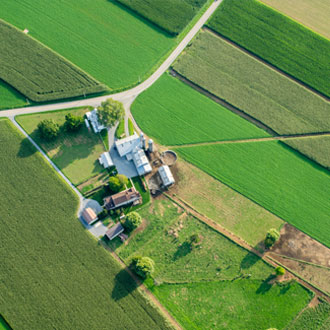Buying or Selling Agricultural Land: avoiding pitfalls and protecting your asset
Even in uncertain economic times, farm land will be one of the most valuable commodities that farmers deal with. Whether you are buying or selling there are simple steps you can take to protect yourself, minimise liability and maximise value. Vicky Hernandez, Director and Head of Property at Hedges Law, has some top tips.
- Understand what you are buying/selling and the appropriate structure
Most land is held as a separate asset and is sold by one individual or farming partnership direct to another. However, this may not be the most cost-effective way to transfer land. Some land may be owned by a company, for example, and it might be more tax efficient to buy and sell the shares in that company instead of the land itself. Transactions can be as simple or complex as the parties choose to make them, but it is worth considering all the options before settling on an agreed way forward
When agreeing a price for the land ensure you know what is included: does the price include Basic Payment Scheme entitlements for example, or will these be retained by the Seller? If there are farm structures and equipment on the land will they be left to the buyer? Does the sale include livestock and, if so, how and when will this be valued?
- How will the land be sold?
The majority of land is sold by private treaty – i.e. between two parties who agree the sale privately, often with the assistance of a local land  agent. However, if this is not proving successful or you don’t think you are reaching the right target market some landowners choose to market their land at auction or by formal tender. This process is more structured and is not for everyone but it could result in the price of the land being driven up by increased demand so it is worth considering. It can also help a landowner set stricter timescales for the sale of the land rather than relying on the buyer and his professional advisers co-operating to meet deadlines.
agent. However, if this is not proving successful or you don’t think you are reaching the right target market some landowners choose to market their land at auction or by formal tender. This process is more structured and is not for everyone but it could result in the price of the land being driven up by increased demand so it is worth considering. It can also help a landowner set stricter timescales for the sale of the land rather than relying on the buyer and his professional advisers co-operating to meet deadlines.
- Due Diligence and Enquiries
Any well-advised buyer will ensure that the solicitors involved with the purchase submit searches and raise appropriate enquiries with the seller’s solicitors. From a seller’s point of view, it is important to answer such enquiries honestly and not withhold information. Whilst the general principle of “caveat emptor” or “buyer beware” applies to the sale of land it is important that you don’t try and hide anything that might later result in a claim of misrepresentation being brought against you.
As a buyer this is your opportunity to ensure you are completely happy with your proposed purchase. Tell your solicitor about any rights you will need to make full use of the land so he or she can check they exist and are properly protected in law rather than just being an informal arrangement that could be revoked. Check that the boundaries of the land accord with the official land registry title. If you are worried about third-parties potentially benefiting from agricultural tenancy rights over the land ask your solicitor to check the position.
The relationship between a solicitor and client works best when both parties communicate their concerns and objectives openly and your solicitor will work best when he or she truly understands what you want to achieve.
- The Legal Paperwork
You will generally enter into a contract to buy/sell the land and a transfer document will be signed at completion to give legal effect to the transfer of the land. If you are buying other assets (livestock, equipment etc…) in addition to the land then, as you might expect, the legal paperwork will become more complicated and will include representations and warranties on the part of the seller and on which the buyer will seek to rely.
If you are buying or selling part of a larger holding you will also want the transfer document to include any new rights that should be created between buyer and seller over the land being sold and/or retained. Such rights might include rights of way or rights to abstract water which will be attached to the land for whoever owns it or you might wish to grant personal rights to specific individuals only (including, for example, sporting rights over the land).
Again, communicate with your solicitor and land agent to determine the key terms of the sale paperwork. A good solicitor will talk you through possible rights and suggested terms to include but as you have far greater personal knowledge of the land your role is key in explaining any practical requirements and issues that need to be addressed.
Whether you are buying or selling land it is paramount to take time to agree the best structure to meet your needs and enable you to buy/sell in a cost and tax efficient manner. Clearly communicating your objectives to your professional advisers will ensure that the sale proceeds smoothly and without unexpected hiccups.
- Log in to post comments

